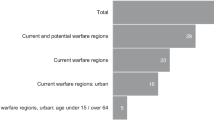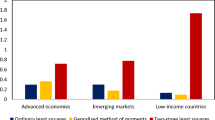Conclusion
Ricardo and Keynes were remarkably close on many of the practical problems of war finance, despite their sharp and somewhat polemical difference on the question of whether an over-issue of currency or an excessive aggregate demand was exclusively the cause of inflation. During a war, when both the quantity of money and aggregate demand are excessive, they would both predict inflation. And, they stood together in the fight against the evils of inflation, because it caused a violent and unjust redistribution of income and wealth. They both accepted the obvious fact that wartime expenditures would crowd out private spending, but they denied that this would necessarily affect interest rates.
Keynes expected the short-run marginal efficiency of capital to adjust to the rate of interest established by the Bank of England; whereas Ricardo expected the bank rate to adjust to the long-run rate of profit under a regime of full convertibility. Ricardo recognized, however, that the bank could set arbitrarily low nominal rates of interest, even during a period of inflation, if its currency were not convertible. Finally, they both opposed large increases in the national debt and recommended redeeming the debt with a property tax after the end of the war. Would any Classical or Keynesian economists be so bold today?
Similar content being viewed by others
References
James C. W. Ahiakpor, “Ricardo on Money: The Operational Significance of the Non-Neutrality of Money in the Short-Run,”History of Political Economy, Spring 1985.
James W. Angel,The Theory of International Prices, NY: Kelley, 1965 [1925].
Mark Blaug,Economic Theory in Retrospect, 3rd ed., Cambridge: Cambridge University Press, 1978.
Edwin Cannan,The Paper Pound of 1797–1821, 2nd ed., London: Cass, 1969 [1925].
Frank W. Fetter,The Development of British Monetary Orthodoxy, Cambridge, MA: Harvard University Press, 1965.
Irving Fisher,Appreciation and Interest, New York: Kelley, 1965 [1896].
John Hicks, “Mr. Keynes and the Classics,”Collected Essays on Economic Theory, 2, Oxford: Basil Blackwell, 1982 [1937].
John Maynard Keynes,The Collected Works of John Maynard Keynes, edited by Donald Moggridge, 28 vols., London: Macmillan, 1971–82.
Axel Leijonhufvud, “The Wicksell Connection: Variations on a Theme,”Information and Coordination, New York: Oxford University Press, 1981.
Arthur W. Marget,The Theory of Prices, 2 vols., London: King, 1938.
Don Patinkin,Keynes' Monetary Thought, Durham, NC: Duke University Press, 1976.
Charles F. Peake, “Henry Thornton and the Development of Ricardo's Economic Thought,”History of Political Economy, Summer 1978.
David Ricardo,The Works and Correspondence of David Ricardo, edited by Piero Sraffa, 11 vols., Cambridge: Cambridge University Press, 1951–73.
Norman J. Silberling, “Financial and Monetary Policy of Great Britain during the Napoleonic Wars,”Quarterly Journal of Economics, February, May 1924.
Jacob Viner,Studies in the Theory of International Trade, London: Allen and Unwin, 1955.
Knut Wicksell,Interest and Prices, translated by R. F. Kahn, NY: Kelley, 1965 [1898].
Author information
Authors and Affiliations
Rights and permissions
About this article
Cite this article
Dooley, P.C. Ricardo and Keynes on war finance. Atlantic Economic Journal 17, 21–33 (1989). https://doi.org/10.1007/BF02303176
Issue Date:
DOI: https://doi.org/10.1007/BF02303176




